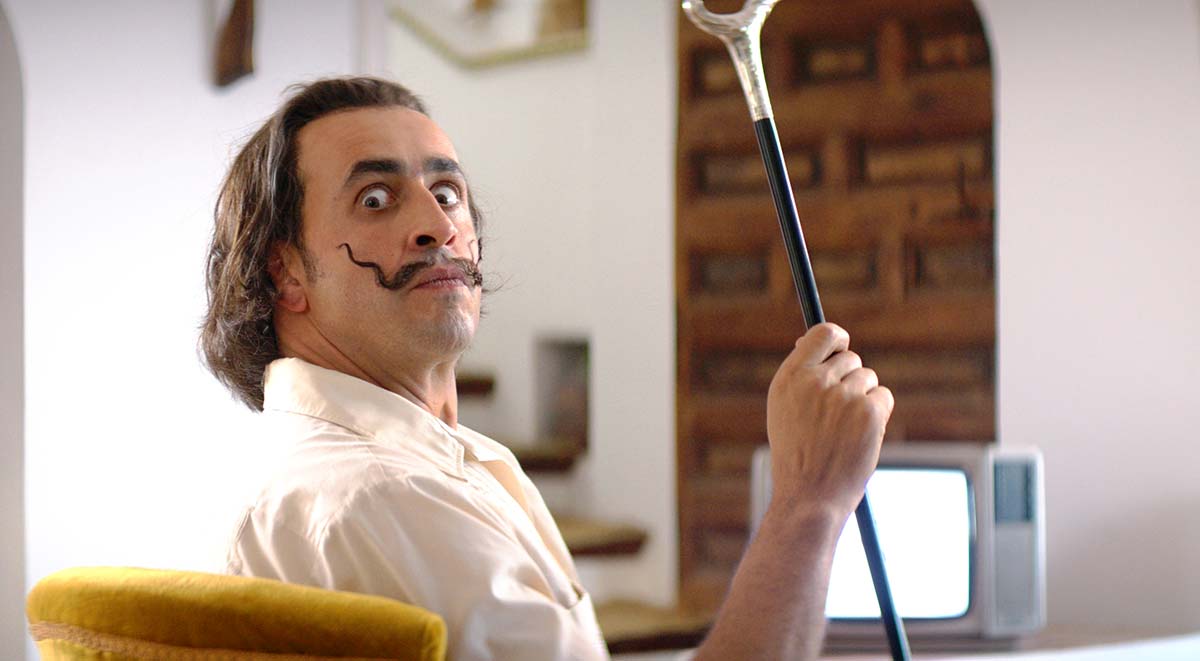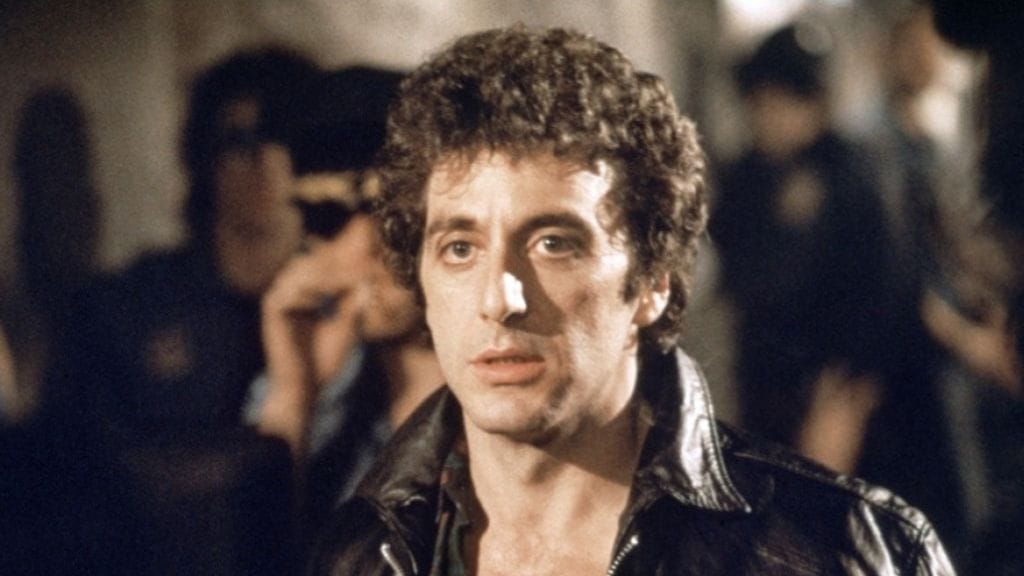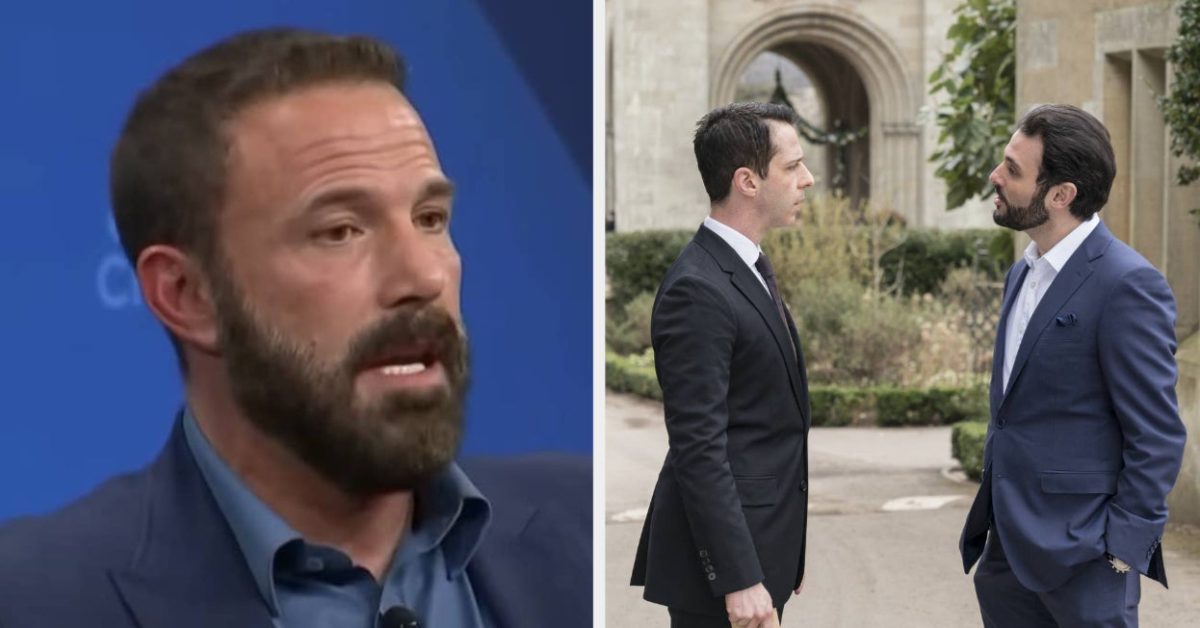
Quentin Dupieux’s Eye For The Beautiful & Absurd Finds Its Perfect Subject In The Spanish Artist [Venice]
Sep 11, 2023
Todd Haynes’ biopic “I’m Not There” famously featured several actors in the role of Bob Dylan, each embodying the artist in one era of his varied musical career. The idea, of course, was to acknowledge Dylan’s shapeshifting nature as well as the fact that his work can mean different things to different people — some may find one actor’s interpretation more convincing and accurate than that of another. In “Daaaaaali!,” the latest film from prolific French director Quentin Dupieux, the Spanish surrealist is similarly multiplied, but the meaning of this proliferation is a lot less straightforward. Édouard Baer, Jonathan Cohen, Pio Marmaï, Gilles Lellouche, and Didier Flamand, the five actors playing the artist, seem to appear in each other’s timelines and in each other’s dreams. They replay each other’s scenes; some of them even meet.
Venice Film Festival 2023: The 17 Most Anticipated Movies To Watch
This is only one of the many ways in which the film, inexplicably excluded from the competition at this year’s Venice Film Festival, like several other accomplished and bold titles, pays homage to an artist who thrived on provoking confusion and wonder in others, through his art but also through his own carefully curated image. Crucially, however, Dupieux’s approach to his subject remains a modest one: the film is not a biopic that would claim to be the final word on its famously elusive subject, but a loving celebration of the artist that channels his ideas and creativity while positioning itself as an outsider’s view.
The film’s framing device consists of the extended attempt by a young journalist (Anaïs Demoustier, who appeared in Dupieux’s “Incredible But True”) to interview Dalí — an apt choice for a film about a man extremely concerned with his public personality and keen to control the outside narrative of his life. In a hotel room, this young woman talks to the camera about the very banal career path that led her to this moment, and we find once again Dupieux’s talent for capturing the absurd dullness of everyday life and the terribly uninspiring ways most people express themselves (see “Deerskin,” “Incredible But True,” “Mandibles”). She does not seem qualified to talk to such an important, eccentric, and interesting figure, which creates an amusingly awkward atmosphere even before Dalí arrives — and he takes a very long time to arrive. Édouard Baer, who plays this particularly arrogant and impatient iteration of the artist, soon shows up at the end of the hotel corridor. Still, he has to walk and walk for several minutes before he finally makes it to the room — as he says, “I’ve never seen in all my life such a poorly conceived hotel, architecturally speaking.” It’s a trick of editing that distorts the space and immediately recalls the cinema of Luis Buñuel, the filmmaker who famously collaborated with Dalí on “Un Chien Andalou” (1929) and “L’Age d’Or” (1930), two classics of surrealist cinema. The every day is distorted, distended, like the big melting clock from one of Dalí’s most famous paintings, The Persistence of Memory (1931).
Dominated by perceptions and impressions rather than the cold hard facts of reality, the world of Dalí is indeed very much about memory and the way time makes its imprint on us. After the planned hour-long interview is cut short because, to the artist’s chagrin and surprise, there are no cameras present, the film follows the journalist’s attempt to secure another interview with him, promising ever bigger cameras — a plot of repeatedly thwarted plans like in Buñuel’s “The Discreet Charm of the Bourgeoisie” (1972). But even as we follow this process, the film’s time and space continue to appear to break down. While she meets with a producer (a brilliantly delusional Romain Duris) who takes the project in an increasingly expensive direction and multiples her efforts to convince Dalí to take part, we find the artist in various places, played by different actors. All are relatively famous in France and cannot say to look alike, but they sport the same mustache, distinctive clothing, a bigger-than-life attitude, and an accent, and while only Baer and beloved comedian Cohen truly deliver in that last category, it is truly a joy to watch these men put their talents to the service of such a bizarre enterprise. Near a seaside house reminiscent of Dalí’s labyrinthine home in Port Lligat, a fishing village in Spain, Marmaï’s Dalí is working on a painting of two men where the strange shapes of their bodies on the canvas are not, as we would assume, the product of the artist’s imagination, but visions taken from real life: one of the men is holding is his hand a crutch that supports part of his abnormally elongated, protruding head. Receiving a call from the journalist, this Dalí walks home and becomes Cohen’s Dalí at the turn of a cut. At a dinner that may or may not be taking place within the timeline of the journalist, the Spanish icon is then played by Gilles Lellouche. Later on, we see him as an old man in a wheelchair, interpreted by Didier Flamand.
Full of reoccurrences and uncanny images, with a slightly frightening mix of the banal, the absurd, and the horrific, the film follows a kind of dream logic. This is never more clear than in the extended, open-ended sequence that supposedly shows us the dream of a priest Dalí is forced to dine with one night. The artist himself has little time for this opportunist trying to get a free painting out of him — one of the many instances in the film showing the artist dealing with the kind of parasitic fans and patrons that come with fame, which his attitude hardly discourages. But Dalí becomes increasingly bewildered and even scared as the dream appears to never end. Several times, the priest finishes his story, Dalí and his wife Gala exit the house, and the artist goes on dealing with the journalist — until we once again cut to the priest at the dinner table, saying, “I just had to tell it to you, Salvador.”
Dupieux, who continues to remind us just how much fun can be had with the most fundamental tools of cinema, finds in this figure an ideal subject, but it is clear Dalí is also an inspiration. In an early scene, the artist is presented with a small painting by an owner seeking confirmation that it is indeed a true Dalí original. It isn’t, but the painter makes it so by simply writing his own iconic signature over it with a marker. The border between thought-provoking art and ridiculous nonsense is thin with Dalí (some people allege that he signed blank canvases so that more of “his” paintings could be created and sold after his death), but this is where he and Dupieux live. It’s a playful vision that allows for many contradictions — the superficial and the profound, the boring and the thrilling, the ugly and the beautiful — and for an endlessly creative vision of art and cinema. [B+]
Follow along with all our coverage of the 2023 Venice Film Festival.
Publisher: Source link
Ben Affleck’s Succession Ending Proposal Sparks Jokes
Jokes aside, Ben is an Oscar-winning screenwriter, after all. Hence, it’s no surprise that he’d be able to conjure up a high-quality storyline, whether drawing from personal experience or not. You can watch the full clip of Ben’s AI discussion…
Nov 19, 2024
1000-Lb. Sisters’ Amy & Tammy Slaton Show Off Burlesque Dance Moves
1000-Lb. Sisters: Amy Slaton Cries After Reaching Huge Milestone in Weight Loss JourneyAmy Slaton and Tammy Slaton are feeling themselves. The 1000-Lb. Sisters stars leaned into their sensuality in a new clip from an upcoming episode of their TLC series.…
Nov 19, 2024
The "Today" Show Just Announced Hoda Kotb's Replacement: "This Is One Of The Most Popular Decisions NBC News Has Ever Made"
"You are literally made for this job. You are that kind of good," Hoda Kotb said of her replacement as co-anchor of Today.View Entire Post › Disclaimer: This story is auto-aggregated by a computer program and has not been created…
Nov 18, 2024
Jelly Roll’s 120-Pound Weight Loss Transformation
"I've always said that I believe obesity is directly connected to mental health," Jelly Roll noted. "I know how easy it is for people to go, 'Just quit eatin' so much, just work out, it's so easy!' I wish I…
Nov 18, 2024











